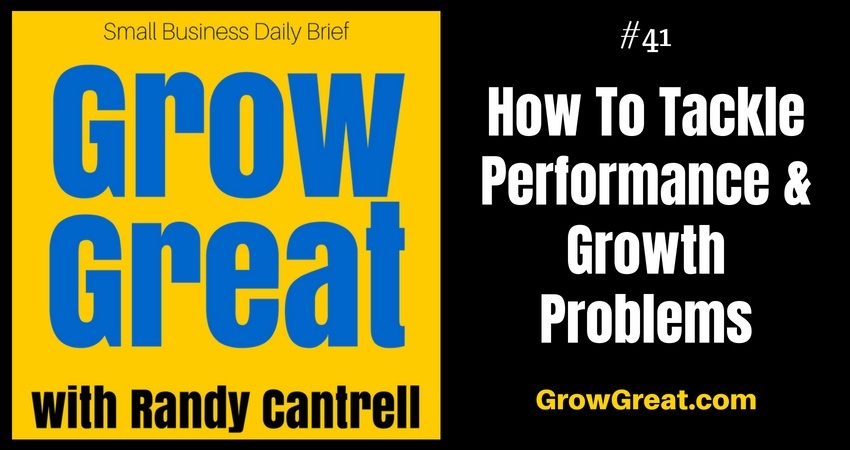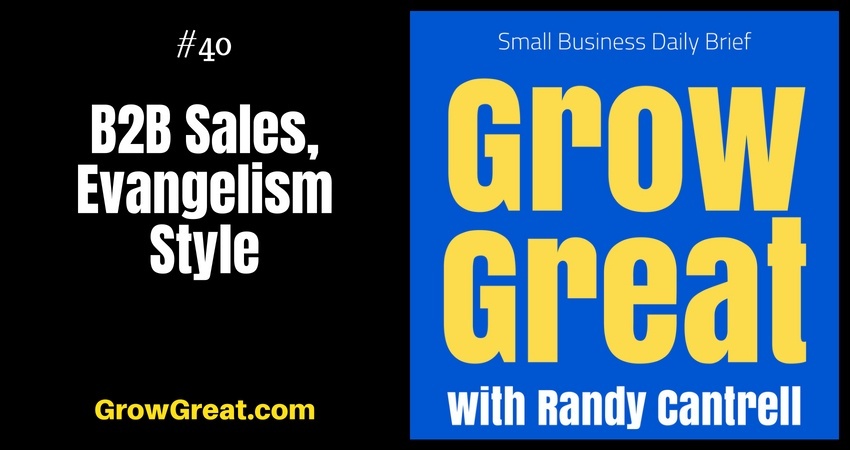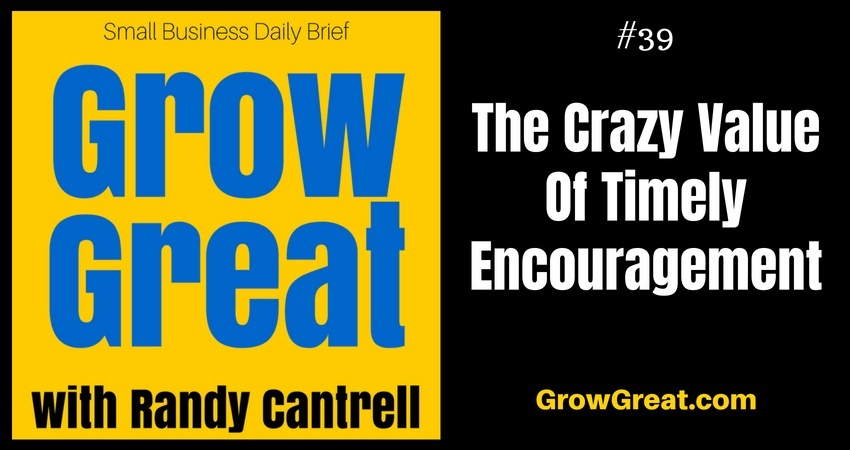Podcast: Play in new window | Download (Duration: 13:21 — 12.7MB)
Subscribe: Apple Podcasts | Spotify | | More

You can read all the details by visiting ThePeerAdvantage.com. Today I want to take a few minutes to share how I got here and why YOU should enroll. I’m also going to give you some value as you embark on your own growth journey.
People provide the power.
We began our businesses to serve people, our clients and customers.
We were taught some important things by people. Family, friends, teachers and mentors have helped us along the way.
Experience taught us some other things. We tried a few things, saw how others responded (or failed to respond) and we made adjustments…all based on the feedback of other people.
We needed some help and began to hire other people to help us find and serve customers.
Everywhere we look, there’s a reminder of how important people are. And it doesn’t matter if we’re in a high-tech manufacturing space, or if we’re building custom homes. It doesn’t matter if our business is Saas-based, online or mostly offline. Maybe we sell cars, or jewelry, farm equipment or real estate. We may be in the service industry where we provide training, support or tools necessary for other companies to do their job. From the medical field and other health industries to aerospace manufacturing and all points in between, business ownership and entrepreneurship success is determined by people.
Every business needs customers. If there were no other people involved, that would certainly be enough reason to concentrate more on how we can attract, connect, influence, serve and satisfy other people.
People provide the problems.
Multi-generational workplaces (which include most larger companies with a headcount of 100 or more) are facing new challenges due largely to the technology of the last 20 years. It’s a terrific opportunity, but it’s also challenging. We’re working harder to foster the culture we want, the collaboration we need and the communication required to elevate the performance of our company.
From engineering to operations leaders and executives lament how badly they need help leading their teams. All the skills learned in school, and previous jobs, can be leveraged toward greater future success. But it all go for naught if people find it difficult to communicate with and understand their co-workers.
The most sophisticated development engineers will tell you that the processes and the code aren’t nearly as challenging as making sure everybody is on the same page, supporting the work that needs to be done.
That’s why there are so many companies, organizations and individuals conducting leadership workshops, team communication workshops, and other team building related programs. The people problem is enormous in both scope and scale.
Where the head goes, the body will follow.
Grassroots movements are real. They can happen. They’re bottom up, which is why we use the word “roots.” Mostly, these are organic activities that erupt based on something people in the trenches feel is unfair or unjust. Or it could be for a cause the group feels isn’t being supported enough. Grassroots movements can happen inside your business, too. It may be a subtle shift in your culture where you see teammate erode because some employees feel overlooked. Or where employees are confused about what they’re supposed or do, or why they’re supposed to do it.
The thing about grassroots movements is you likely have little or no influence on them. And they can take on a life of their own. A life you’ll be stuck trying to figure out and trying to manage. If it’s something you need or want (which would be a great bonus), then it’s easy. Unfortunately, that’s not often the case.
The first day of summer football practice in my freshmen year. We’re out there in sweats and sneakers. Most of us had been playing football since 5th grade, which is when you could start playing football (and yes, it was all tackle back in the day). Here we were, standing in a line facing the coach who was lecturing us on things we had learned many years prior. For example, he told us that our high school used the “three-point stance,” which just meant that people on the line of scrimmage would crouch down and put one hand on the ground. Their other hand would be free. Some snickering began as players found it so elementary that it was funny. I wasn’t smiling yet though.
The coach went on to tell us, “Whichever way you take a man’s head, that’s the direction his body will go.” If you move your opponent’s head to the right, he’ll go right. Move it left, he’ll go left.
He said it with such a tone of profundity that I couldn’t help but smile. He glared at me, then said, “Cantrell, you think that’s funny?”
I was mostly shocked he knew my name. And before I could stop myself I replied, “Kinda.”
He commanded I step forward and get down in a 3-point stance. I obliged. He stood over me holding my head down and said, “Try to stand up.” Here’s a grown man standing over me upright, leaning down on the top of my head with his weight and leverage. Of course, I wasn’t able to stand up.
Proudly, when he let me up he said, “See?”
Thankfully I didn’t say what I was thinking. Namely, that we or an opponent would be called for holding if we deployed such a tactic, but wisdom prevented me. I may be stupid once, but twice? Not if I can help it.
He was completely right though. Where our head goes, our body follows. More importantly for today, where YOU, the owner (the leader, the head) go…your people (or organization) will follow.
It begins and ends with YOU.
Safety. Confidentiality. Privacy.
I know we don’t seem to care about these things with social media, but when it comes to operating our businesses…we care very much. As entrepreneurs, we’re already showing the world we’re willing to embrace risk and feeling uneasy. But anxiety, fretfulness and worry are common components to our individual and collective loneliness.
But this isn’t about solving a specific pain. Or providing a specific solution. It’s different. Holistic. Comprehensive. Individual. Powerful.
It’s about being intentional about who you surround yourself with. That’s key. Most of us are just going through life interacting with folks who come into our life, for whatever reason. Some of them we like a lot. Others, not so much. This isn’t about judging the value or worth of people. It’s about gauging the value people can bring to us, and the value we can provide to them. Nearly everybody has some toxic people in their life. People who suck the energy out of us. Getting rid of those folks is easier said than done. Equally difficult, finding people who can give us energy, lift us up when we’re down, challenge us when we need it most, and help hold us accountable – not to what they want us to do – but to what we decide we want to do!
This people problem is tough, which is why most of us don’t change anything. We just keep doing what we’ve always done. Trudging forward with or without any help. Mostly thinking there’s just not a good answer. And we’re just comfortable with it being this way. We don’t know any better.
Everything is hard until it’s easy!
You don’t think there’s a solution because you’re busy. It’s not a problem.
And maybe it’s not a problem. But there’s an enormous loss of potential.
It’s not that where you’re at, or what you’re doing is awful. It’s not a question of failure versus success. It’s a question of how much greatness are you leaving on the table? How much profit are you not realizing? How many problems are you not solving as quickly as you could? There are so many “what if” questions that are easily answered when you purposefully and intentionally surround yourself with other business owners. The connection and understanding are almost instantaneous. Because you’re surrounded by other business owners, you all get each other. And that makes all the difference in the world.
Courage needed.
It requires big courage to give and accept service from others. The kind of service that moves the needle. Not the kind of safe service where you sit in an audience listening to some pundit or expert hold forth. For a few hours you feel a reprieve from the duties of the day, and you feel good that you’re trying to fuel your mind with something worthwhile. But nothing said is going to stick. It never does. You’re going to forget all about this stuff within 24 hours. Maybe less. That’s just the courage to be distracted. Nothing wrong with it. But that’s not what this is.
This is life changing. It’s business changing.
Because it works!
It works because you’re all business owners, high achievers.
It works because you all understand each other. Instant empathy.
It works because seven business owners getting together on a regular and consistent basis accelerate getting familiar with each other. The more we get to know people – and the more they get to know us – the closer we get. The more we’re able to help each other. Lean on each other.
Care. Compassion. Empathy. These are the drivers.
Judgment. Impositions. These are forbidden. And these are the single biggest obstacle I have to overcome to educate business owners about The Peer Advantage by Bula Network. We’re so accustomed to people in our life telling us to do this, don’t do that, and nitpicking our ideas or plans. Or we’re used to folks always saying, “Yes.” What we need are people who will listen to us, understand us and give us feedback to help us grow, improve and transform.
If you see it, you see it. If you don’t, you don’t.
Just because I see the value of placing you in a virtual room with 6 other business owners willing to help you doesn’t mean you see it. If you do see it, go to ThePeerAdvantage.com and scan over the information. Scroll to the bottom of the page and click that APPLY NOW button. There are a few questions to help me learn more about you and your business. Once you submit it, we’ll schedule a phone call to see if this opportunity is a good fit. Together we’ll figure it out.
You qualify if you own a business with at least $5 million in annual revenue.
Be well. Do good. Grow great!

Listen to the podcast










